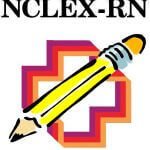ACT Perfect Score: How to Prepare and Achieve a 36

The ACT is a standardized test that high school students in the United States take to measure their readiness for college.
A score of 36 on the ACT is the highest possible score and is considered to be an excellent score. In order to get a 36 on the ACT, students need to know what is needed and prepare accordingly.
What is Needed for a 36 on the ACT?
In order to get a 36 on the ACT, students should plan to commit significant time to study and practice. The first step is to become familiar with the format of the test and understand what types of questions will be asked.
Once students have a good understanding of the types of questions they will encounter, they can begin practicing with sample questions. Additionally, it is important for students to understand basic test-taking strategies.
For example, students should learn how to eliminate wrong answers, make educated guesses, and pace themselves so that they have enough time to answer all of the questions.
Understanding ACT Content
Another important aspect of preparation is understanding what content will be tested on the exam. The ACT covers four main content areas: English, Math, Reading, and Science.
Within each content area, there are specific skills that will be tested. For example, in English, students will need to demonstrate their knowledge of grammar, usage, and rhetoric.
In Math, they will need to demonstrate their knowledge of algebra, geometry, trigonometry, and more. It is important to identify which content areas require their focus based on their strengths and weaknesses.
After identifying which content areas need improvement, students can find resources to help them improve their understanding of that content. Books, online resources, tutors, and classroom instruction are all great ways for students to learn more about specific content areas.
ACT English: What Types of Questions Are Asked?
There are four main types of questions that will be asked on the ACT English test. These question types include identifying errors, improving sentences, improving paragraphs, and identifying sentence structure.
Each section will have a different focus, but all four types of questions will be mixed in throughout the entire test. Below is a more detailed explanation of each type of question.
Identifying Errors Questions
For these questions, you will be asked to identify errors in grammar, usage, or punctuation and then select the best way to fix them. There typically will be five or more of these questions on the ACT English test.
Improving Sentences Questions
For these questions, you will improve sentences by selecting the best way to revise them. There are usually five or more of these questions on the ACT English test.
Improving Paragraphs Questions
For these questions, you will improve paragraphs by adding sentences, deleting sentences, or rearranging sentences. There are about three of these questions on the ACT English test.
Identifying Sentence Structure Questions
For these questions, you will need to identify the best way to combine sentences. There are often three or more of these questions on the ACT English test.
Now that you know what types of questions to expect, you can start preparing for the ACT English test by taking practice tests and studying grammar rules. with a focus on the types of questions that will be asked.
Additionally, use ACT English prep books to brush up on your skills. Finally, take advantage of online resources, such as practice tests and grammar rules quizzes, to ensure you are fully prepared for the test.
ACT Math: What Types of Questions Are Asked?
There are 60 math questions on the ACT, and they’re divided into five sections with different question types. You’ll encounter:
1. Pre-Algebra: 18-20 questions
2. Elementary Algebra: 12-14 questions
3. Intermediate Algebra: 9-11 questions
4. Coordinate Geometry: 8-10 questions
5. Plane Geometry: 11-13 questions
You might be wondering what types of math problems you’ll encounter in each section. Here’s a closer look:
- Pre-Algebra: This section covers basic math skills like solving equations, working with fractions and decimals, and interpreting graphs.
- Elementary Algebra: In this section, you’ll need to solve equations and systems of equations, work with radicals and exponential expressions, and understand basic functions.
- Intermediate Algebra: You’ll encounter more challenging concepts in this section, including manipulating complex fractions, solving quadratic equations, and working with absolute values.
- Coordinate Geometry: This section focuses on graphing lines and understanding the various properties of two-dimensional figures.
- Plane Geometry: You’ll need to know your stuff when it comes to triangles, circles, polygons, and other three-dimensional figures in this section.
ACT Reading: What Types of Questions Are Asked?
As you read a passage, keep in mind that the ACT reading test is designed to measure your ability to read closely and critically. In other words, you will be asked questions about what you have read that require more than just a basic understanding of the text.
Instead, you will need to analyze the author’s use of evidence, reasoning, and stylistic choices in order to arrive at your answers.
There are three main types of questions you can expect to see on the ACT reading test:
- Detail questions ask you to identify specific information from the passage. These questions might ask you about a character’s motivation, the purpose of a particular piece of evidence, or an author’s opinion on a topic.
- Inference questions require you to draw conclusions based on what is stated and implied in the passage. You might be asked to identify an author’s purpose for including a certain detail or to explain how a character feels based on their actions.
- Big picture questions ask you to synthesize information from the passage in order to understand its overall purpose or theme. You might be asked about the main idea of the passage, or how a particular example illustrates a larger point.
ACT Science Reasoning: What Types of Questions Are Asked?
A great way to prepare for the ACT Science Reasoning section is to understand the types of questions that are asked. The three main question types are data representation, research summary, and conflicting viewpoints.
- Data Representation questions will provide you with a graph, table, or experiment and ask you to interpret the information.
- Research Summary questions will present you with information from a passage and ask you to interpret it.
- Conflicting Viewpoints questions will present you with two different viewpoints on a topic and ask you to analyze the strengths and weaknesses of each side.
By understanding the types of questions that are asked, you can better focus your studying and maximize your score in the ACT Science Reasoning section.
Getting a Perfect ACT Score Is No Easy Task
Achieving a perfect score on the ACT requires dedication and hard work but it is definitely achievable with proper preparation. Students should become familiar with the format of the test as well as understand what types of questions will be asked.
They should also commit time to practice with sample questions so that they can get a feel for timing and pacing themselves throughout the exam. Additionally, it is crucial for students taking the ACT to identify which content areas they need help with so that they can find resources to supplement their learning in those areas.
By following these steps, any student has a chance of getting a perfect score on the ACT! Now it’s your turn. What are some of the most effective strategies that you employed for raising your ACT Score? Sound off in the comments section below!
[Featured Image Original]








